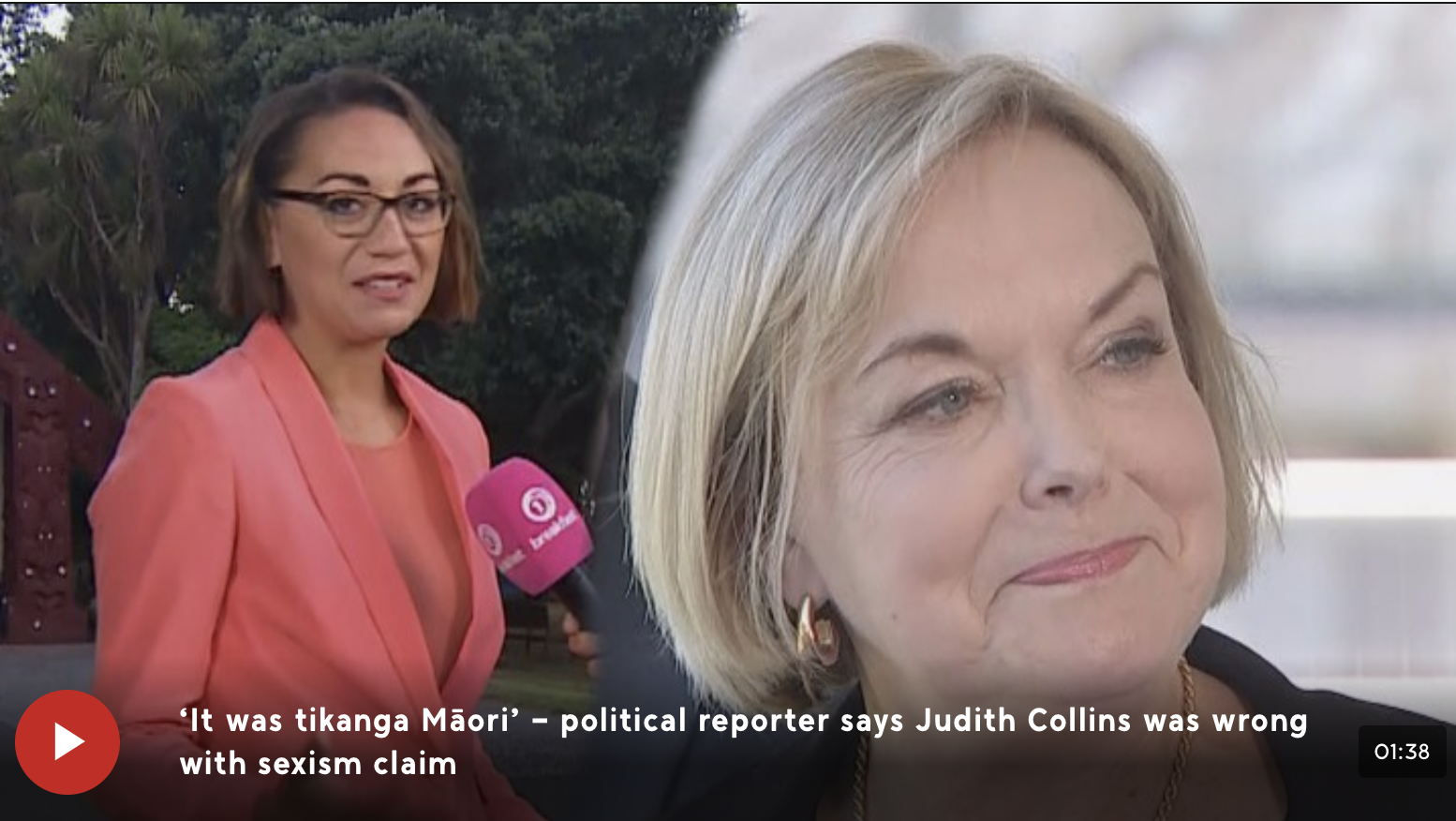I am what the left would call a “woman of colour.” According to the left that makes me a step higher up on the identity politics pyramid of victimhood than a “white woman” and makes me an expert on racism. My brown skin allows me to know racism when I see it and boy am I seeing it in the NZ media.
One journalist, in particular, stood out for me this week, Maiki Sherman. Her mantra might as well be ‘unless you’re brown we will knock you down’. Her racism against Pakeha isn’t even hidden. She wants them to know their place and accuses them of being fragile if they dare to object. Clearly, some NZ Media outlets do not feel that they have to watch what they say about white people or “wypipo” as the racists on Twitter like to call them.
List of things wypipo can write about:
— Sassy Little Hobbit (@LI_politico) February 7, 2021
-White supremacy amongst white women
-A deep dive into Mayonnaise: Delicious or unfairly maligned?
-Depth of the perfect casserole dish
-Camping
-Dressage
-How to make straight hair glossy
-Boiled chicken
-Why brunch but not dunch?
-Lawns https://t.co/qBh63lSa5D
The Human Rights Commission should have its feet held to the fire for allowing this type of racist media culture to thrive. Not only is some NZ Media not censured for their ongoing and blatant racism against Pakeha they are encouraged in it. Hating whitey is the new black. Putting the boot into non-Maori appears to be some NZ Media outlets favourite virtue signal.
This week National leader Judith Collins pointed out the misogynistic elephant in the Marae and brought about change. Enlightened societies have long given equal rights to women. New Zealand was the first country to give women the vote. Ironically wahine Maori may have had the vote thanks to European culture but their Maori culture prevented them from speaking on the Marae.
So what was the reaction of Maiki Sherman to Judith Collins achieving in one day what Wahine Maori have failed to achieve for themselves even in today’s more enlightened times? Was she admiring? Was she grateful? Nope, she was defensive because it was a non-Maori woman that managed to change a Maori tradition.
Like a battered wife or a victim of Stockholm syndrome, she chose to attack the person trying to help and her editors published every racist word.
Analysis: Those Jumping to Defence of Judith Collins over Speaking Rights on the Marae – ‘Blind Leading the Blind’
Marama Davidson said what almost every other Maori woman is thinking. Discussion and debate over the roles held by women on the marae will – and has always been – led by wahine Maori.
What Marama Davidson said boiled down to shut up whitey and according to Maiki Sherman Maori women would rather put up with unequal treatment than have the problem fixed for them by a Pakeha.
Those jumping to the defence of Judith Collins over speaking rights on the marae simply expose themselves as lacking cultural competency at best, and a sad sense of white fragility at worst.
The above is a classic case of the pot calling the kettle black. Sherman accuses supporters of Judith Collins of having “White fragility” when the only fragile ego under the spotlight here is Shermans. She is projecting her feelings on to others. After all it wasn’t a fragile woman who brought about change it was a strong, powerful Pakeha woman and some Wahine Maori have got their noses well and truly put out of joint by it. Those supporting Collins aren’t doing so because they have thin skins but because they know sexism when they see it.
Marama Davidson used racist language when she basically told Judith Collins to shut up because she lacked “cultural expertise” and Sherman used a similar racist term “cultural competency” when also telling her to butt out. Both phrases are fancy ways of saying you ain’t brown!
Both women should be called out on their racism. Imagine if Judith Collins told Marama Davidson to be quiet every time she opened her mouth to comment on or to criticise European culture and traditions because she lacked “cultural expertise” or ” cultural competency”?
I will leave Sherman with the last word…
Change on the marae at Waitangi will come but it will be at the discretion of Maori.
tvnz.co.nz

Please share this BFD article so others can discover The BFD.

